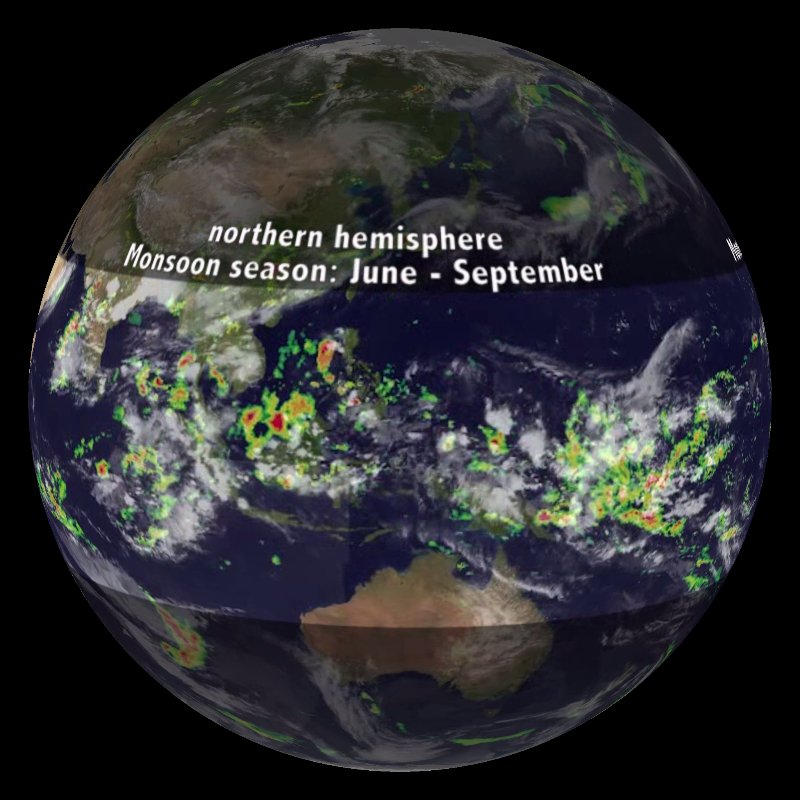ClimateBits: Monsoons

This video gives background information about the summer monsoon. In the winter, the monsoon direction reverses over the Indian Ocean, bringing wind and rain to East Africa.
In 2004, a 55-pound Giant Aldabra tortoise washed ashore near Dar es Salaam in Tanzania.
Tortoises are land animals, unlike sea turtles, so it floated rather than swam across the ocean. Based on the barnacles that grew on its legs, scientists found that the tortoise had floated all the way from the Aldabra Atoll in the Seychelles over 450 miles away. The tortoise likely washed away during a strong monsoon and was afloat for several weeks or months along the South Equatorial Current with the westerly monsoon winds before ending up on shore.
Download an SOS playlist for this module.

This video gives background information about the summer monsoon. In the winter, the monsoon direction reverses over the Indian Ocean, bringing wind and rain to East Africa.

Turtle migration serves as a fun comparison to this unusual story, and can launch discussion about biological adaptations of turtles and tortoises.

There is a tie between surface currents and surface winds, and both likely contributed to the tortoise's movement.

The South Equatorial Current flows East to West in the Indian Ocean and can be seen in this dataset. Turn on the Country Names and Ocean Currents layers to see the locations and names of the the Seychelles and coastal Tanzanian currents.